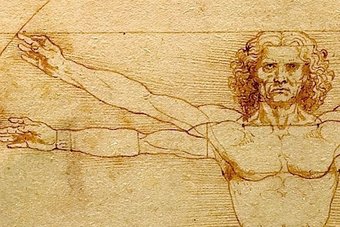What’s a Body to Do?
In today’s social media-saturated world, people often bemoan our society’s obsession with the perfect body, especially on picture-heavy apps like Instagram and Pinterest. The truth is, the human race has always been obsessed with our bodies, and understandably so. Our bodies are the vessels of life on Earth and a good body usually means good genes which usually means better chances for survival and continuation of those genes. Infatuation with external appearances is just as prevalent in the animal kingdom among creatures in a particular state of mind. A good body is a highly desirable biological characteristic.
Mankind’s penchant for art, and more recently, photography has increased our corporeal awareness to nauseating proportions and has led to many destructive behaviors. Yet even if technology were suddenly done away with and we couldn’t scroll through Instagram to find inspiration for our next soon-to-fail yoga routine, we would still be consumed with how to look and feel good in our bodies.

Image copyright Netflix
Yet the body is not a trivial thing. God fashioned Adam and Eve with His own hands and in His own image, which strongly suggests that we look at least something like God. The Gospels, especially Matthew, gave keen attention to Jesus’ miracles of healing, not only as proof of His divinity, but also as a key component in the Kingdom of Heaven, which has no disease (Matthew 8:16-17). Our soul is what matters most but we are also meant to have healthy, beautiful bodies. This is just not possible in our fallen world but for those of us who have been saved, one day, this glorious hope will be realized.
I’ve been watching a grim yet intriguing show on Netflix called The Frankenstein Chronicles. I won’t go into the plot or character details but one thing that caught my attention is a group of supposed Christians who oppose the “anatomists,” doctors who use corpses for medical research. Their reasoning is that if the body is dismembered or destroyed, the dead won’t be able to join in the promise of the resurrection in the Last Days (1 Cor. 15:51-55). This is a very common sentiment throughout the ages of Christianity and is the grounds for which many people even today refuse cremation.
So just how important is an intact body? Obviously, the answer is “none at all.” How many Christians have died violent deaths and had their bodies utterly pulverized? Not only that, but think  about the bodies of Christians that were neatly buried centuries ago. They are literally dust now. There is no symbolic significance of going into the grave whole so that one may come out of it in the same way. In 1 Cor. 15:50, Paul states that these frail mortal shells cannot inhabit the Kingdom of God. There is no need to worry about what state they are in because they are going to be totally done away with in the end.
about the bodies of Christians that were neatly buried centuries ago. They are literally dust now. There is no symbolic significance of going into the grave whole so that one may come out of it in the same way. In 1 Cor. 15:50, Paul states that these frail mortal shells cannot inhabit the Kingdom of God. There is no need to worry about what state they are in because they are going to be totally done away with in the end.
Biblical promises about our bodies also give me comfort when I hear stories about people trying to upload their minds into computers in order to “live forever.” Heb. 9:27 says that “it is appointed for man to die once, and after to face judgment.” No one will live forever, even if a computer program mimics one’s personality. When the body dies, the soul will be judged, and if they are a believer, they will one day inherit a new and perfect body. That is the way God intended it from the beginning.
Our bodies do matter and we should take care of them, but we should also recognize that they will one day die and be replaced by something completely new. Personally, I’m okay with that. I mean, look at this place. Who would want to live forever?







































Yeah, it’s one of those beliefs that end up bizarrely deep seated. Apparently my grandma is reflexively nervous about my aunt intending to be cremated. Sorry, Grandma, but embalming is EXPENSIVE and kinda wasteful. Also the embalmer did a crap job on Great-Grandma’s death makeup and kinda scarred Mom for life.
Mark, I agree with you that the condition of our bodies at death is not something we need to worry about. God is more than capable of assembling all the atoms that were inside us (if that’s how resurrection in fact works).
I do think it’s worth mentioning that being in the image of God, in my opinion, is not a physical likeness. God is described as being invisible, infinite in expanse, yet having a consciousness present in every location. It is literally impossible for any version of a human body to do that.
I think our reflection of the image of God is less literal. God does not have physical hands, but has spiritual forces that do what our hands do (yet on a vaster scale). He does not have a physical mouth, but he speaks. He lacks physical ears, yet he hears. No legs, yet he moves, etc.
In other words I believe that God took things that are true about himself, things that derive from non-physical sources and ingeniously made a piece of walking and talking flesh that on a small scale can do all of the things he does. We are therefore a reflection of who God is, but not a physical or outward reflection–at least that makes sense to me from what I read in the Bible about how God is described.
Though I do of course recognize that historically speaking, it has been pretty common for Christians to believe we physically look like God.